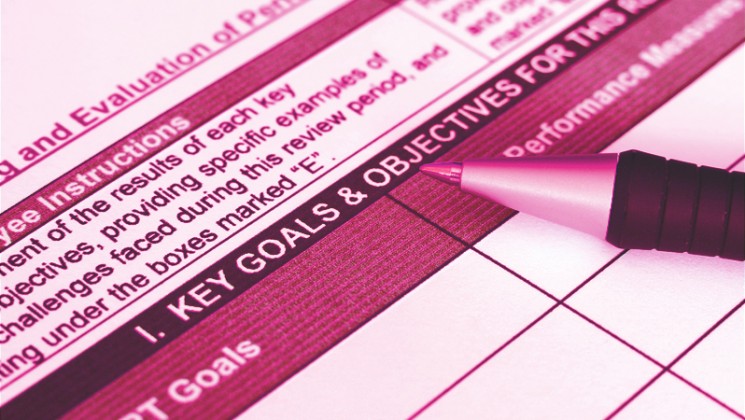What is an appraisal?
Appraisals are meetings set up by your employer that allow you both to discuss your work performance. There is no legal requirement to carry out appraisals, but most employers have a yearly or twice-yearly review process.
Appraisals are often used to determine whether targets have been achieved and make decisions about future work. Another reason for appraisals is to discuss career plans. In some cases, they may include bonuses and pay increases.
A good appraisal should be a two-way process, where you are encouraged to speak honestly and openly about your job. They are usually carried out by your line manager.
Appraisal procedure
An appraisal should be held in private, on a one-to-one basis. You should be given enough notice of your appraisal meeting date and you may be asked to complete appraisal documentation before the meeting as part of the process.
This can help your employer plan appropriately and prepare for any issues you wish to raise.
After the meeting, you should be given a written report of your appraisal, which could include:
- personal details, including job title and description;
- a performance review of specific areas of work;
- an overall performance rating;
- comments from the appraiser;
- your comments about your performance;
- a personal development plan or action plan.
How your employer may approach your appraisal
Appraisals may include rating your performance in different areas numerically. Each point is discussed and a score given, leading to an overall performance score. Both you and your appraiser can make comments on each point.
Another way of rating employee performance in different areas is by using a standard, or categories such as “meets expectations” or “exceeds expectations”.
Your performance may also be linked to specific objectives or tasks and rated according to how well you have performed.
Outcome of appraisals
Most appraisals are completed and signed off by the line manager and employee. The appraisal is kept as a record of the employee’s development and progress.
If minor issues are in dispute, but the employee is satisfied with the appraisal overall, a record of the areas that have not been agreed can also be kept.
It is important to remember that an appraisal is not a disciplinary process and should not be used by your employer to impose disciplinary sanctions. However, issues relating to performance are sometimes dealt with by referring to past employee appraisals, if an employer starts an “employee improvement process”.
Appraisals should be an open forum to allow you and your line manager to talk about your performance at work and any issues you have about your career.
If you are unhappy with the result of your appraisal, most employers will have an appeals process or mechanism in place to address any issues and record your concerns. A UNISON rep can help you in preparing documents for an appeal process following your appraisal.
If an appeal meeting is held, a UNISON rep can also advise on the best way to make sure that your point of view is heard and that you are being treated fairly.
Next steps for UNISON reps
Members may ask you to help them with an appeal after an appraisal, but it is unusual to sit in on appraisals. Speak to your employer to see if their appraisal scheme allows you to attend meetings with members.
Key facts
- An appraisal is a formal opportunity to analyse your performance at work, which also offers you a chance to talk to your employer about your career plans. Appraisals are not required by law, but they can be useful for both you and your employer to review progress and discuss wider work issues.
- Appraisals should not be used as part of the disciplinary procedure.
- Appraisals can be used to evaluate pay increases and bonuses.
- You should be given a written record of your appraisal meeting.
FAQs
Appraisal
-
Are appraisals required by law?
No, but most organisations have some kind of appraisal scheme.
-
Can I discuss my concerns in an appraisal?
You may be asked to fill out a pre-appraisal questionnaire, or other documents, which may ask you to comment on your performance and voice any concerns and issues.
These will form the basis of the discussion during the meeting.
-
What’s the point of an appraisal?
Mainly, it is there to monitor your development, identify training and related needs, and improve your performance.
-
Who carries out my appraisal?
Appraisals are usually carried out by your line manager. To be effective, the appraiser should be someone who knows about the specifics of your job.


